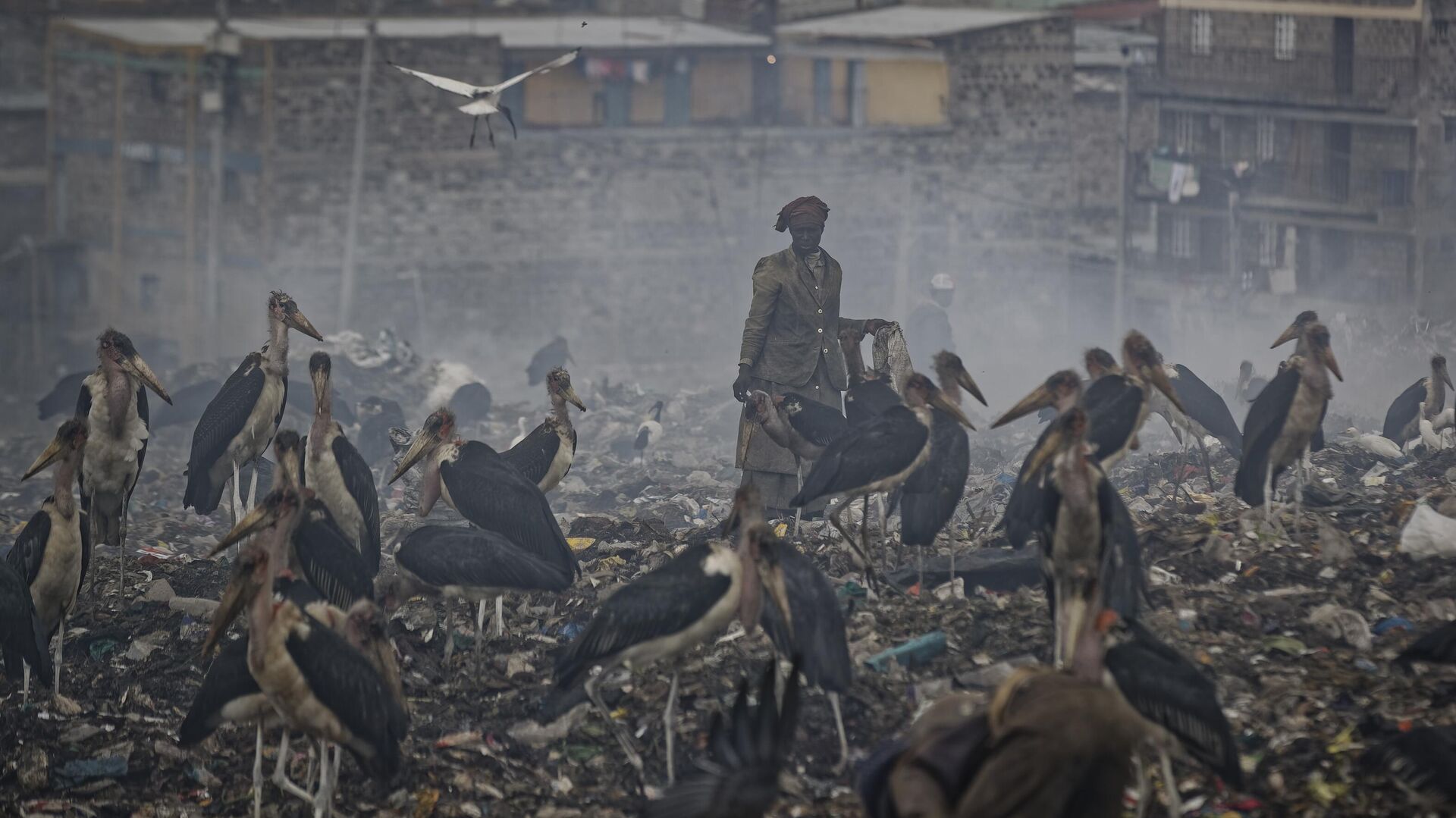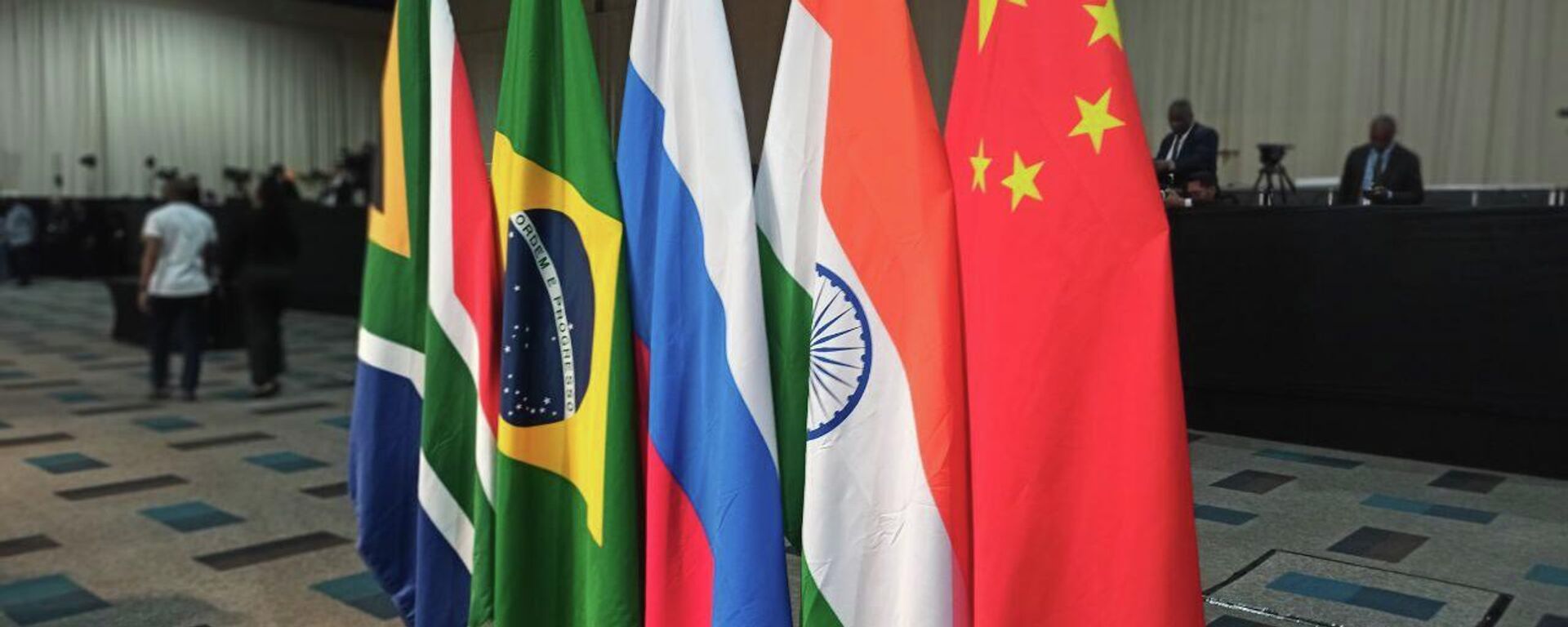https://en.sputniknews.africa/20231104/uneca-17-of-20-countries-most-vulnerable-to-global-warming-are-in-africa-1063302756.html
UNECA: 17 of 20 Countries Most Vulnerable to Global Warming Are in Africa
UNECA: 17 of 20 Countries Most Vulnerable to Global Warming Are in Africa
Sputnik Africa
In September, the UN General Secretary Antonio Guterres spoke of the injustice that "burns hopes and possibilities" across Africa, noting that as the world... 04.11.2023, Sputnik Africa
2023-11-04T12:34+0100
2023-11-04T12:34+0100
2023-11-04T12:34+0100
pollution
united nations (un)
international
north africa
central africa
west africa
east africa
southern africa
sub-saharan africa
antonio guterres
https://cdn1.img.sputniknews.africa/img/07e7/0b/04/1063302115_0:263:3149:2034_1920x0_80_0_0_0c59ac447d27df077b68189f8a18a295.jpg
Africa includes 17 of the 20 countries most vulnerable to climate change, which already affects between 2% and 9% of national budgets across the continent, according to the latest report released released by the United Nations Economic Commission for Africa (UNECA).According to the release, North and West Africa are particularly vulnerable. Temperatures are expected to rise by 1.5°C to 3°C, presenting a significant threat to people's health, productivity and food security.The Director of the UNECA office for West Africa Ngone Diop said that food insecurity is one of the region's greatest challenges and that strategic decisions need to be made to pursue structural transformation and development of the continent.In the same vein, the Director of the UNECA Office for North Africa Zuzana Brixiova compared the impact of water scarcity in the region with the rest of the world and suggested some alternatives to accelerate a sustainable economic and social development in Africa.According to the UNECA, despite Africa's low contribution to climate change, the continent is significantly impacted by global warming and has used its public finances to mitigate and protect its citizens, thereby depriving the population of the resources needed to have social and economic development.On Wednesday, UNECA Offices for North and West Africa held a meeting in Accra, the capital of Ghana, where scientists, experts and representatives from 22 African countries gathered to discuss the impact of global warming in the region and explored new alternatives that enable the social and economic development of the continent. The theme of the meeting was the "Transition to Renewable Resources for Energy and Food Security in North and West Africa."
https://en.sputniknews.africa/20230911/brics-can-help-africa-tackle-climate-change-while-avoiding-debt-african-economic-council-1062039314.html
north africa
central africa
west africa
east africa
southern africa
Sputnik Africa
feedback@sputniknews.com
+74956456601
MIA „Rossiya Segodnya“
2023
Samantha Arias
https://cdn1.img.sputniknews.africa/img/07e7/0a/18/1063050346_115:0:834:719_100x100_80_0_0_1682778780537fd5aa8dd2536a012c1b.jpg
Samantha Arias
https://cdn1.img.sputniknews.africa/img/07e7/0a/18/1063050346_115:0:834:719_100x100_80_0_0_1682778780537fd5aa8dd2536a012c1b.jpg
News
en_EN
Sputnik Africa
feedback@sputniknews.com
+74956456601
MIA „Rossiya Segodnya“
Sputnik Africa
feedback@sputniknews.com
+74956456601
MIA „Rossiya Segodnya“
Samantha Arias
https://cdn1.img.sputniknews.africa/img/07e7/0a/18/1063050346_115:0:834:719_100x100_80_0_0_1682778780537fd5aa8dd2536a012c1b.jpg
pollution, united nations (un), international, north africa, central africa, west africa, east africa, southern africa, antonio guterres
pollution, united nations (un), international, north africa, central africa, west africa, east africa, southern africa, antonio guterres
UNECA: 17 of 20 Countries Most Vulnerable to Global Warming Are in Africa
Samantha Arias
Producer / Podcast host
In September, the UN General Secretary Antonio Guterres spoke of the injustice that "burns hopes and possibilities" across Africa, noting that as the world struggles with global warming, the continent is suffering some of the worst effects of climate change.
Africa includes 17 of the 20 countries most vulnerable to climate change, which already affects between 2% and 9% of national budgets across the continent, according to the latest report released released by the United Nations Economic Commission for Africa (UNECA).
According to the release, North and West Africa are particularly vulnerable. Temperatures are expected to rise by 1.5°C to 3°C, presenting a significant threat to people's health, productivity and food security.
The Director of the UNECA office for West Africa Ngone Diop said that food insecurity is one of the region's greatest challenges and that strategic decisions need to be made to pursue structural transformation and development of the
continent.
"Food insecurity is unfortunately a structural challenge in Africa, affecting 20% of the continent's population compared to the global rate of 9.8%. In this context, three imperatives are evident: increasing agricultural and cereal productivity, mobilizing more domestic resources, and expediting the implementation of the African Continental Free Trade Area Agreement (AfCFTA), which serves as our cornerstone for poverty reduction and the acceleration of structural transformation," said Ngone Diop.
In the same vein, the Director of the UNECA Office for North Africa Zuzana Brixiova compared the impact of water scarcity in the region with the rest of the world and suggested some
alternatives to accelerate a sustainable economic and social development in Africa.
"In North Africa, it is estimated that water scarcity could affect up to 71% of GDP and 61% of the population, compared to 22% and 36% for the rest of the world. However, alternatives remain: by relying on renewable resources, we can not only address these challenges but also accelerate sustainable economic development and social development in the region, along with poverty reduction, job creation, and social equity," said Zuzana Brixiova.
According to the UNECA, despite Africa's low contribution to climate change, the continent is significantly impacted by global warming and has used its public finances to mitigate and protect its citizens, thereby depriving the population of the resources needed to have social and economic development.
On Wednesday, UNECA Offices for North and
West Africa held a meeting in Accra, the capital of Ghana, where scientists, experts and representatives from 22 African countries gathered to discuss the impact of global warming in the region and explored new alternatives that enable the social and economic development of the continent. The theme of the meeting was the "Transition to Renewable Resources for Energy and Food Security in North and West Afri
ca."


